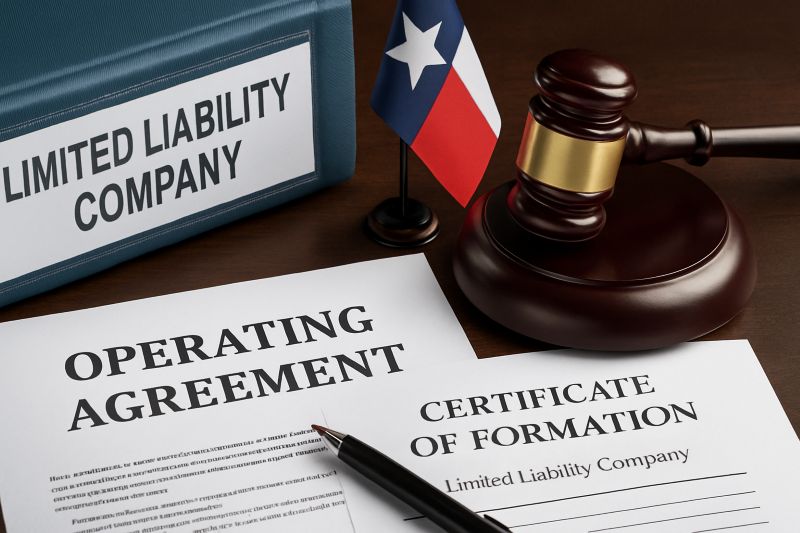
Starting a business with a friend or partner often begins with enthusiasm and trust. But as experienced Texas business attorneys, we frequently see that those good intentions can quickly unravel if there’s no clear, written understanding of how the business will be run or how it will end. That’s where a well-drafted Operating Agreement becomes crucial.
The Operating Agreement Is a Contract
In Texas, an Operating Agreement is not just a formality; it is a contract between the owners (members) of a Limited Liability Company (LLC). It governs the company’s internal operations and the relationships among its members. Yet, many new business owners mistakenly think that filing a Certificate of Formation with the Texas Secretary of State is all they need.
Without a written Operating Agreement, you're leaving the management of your business up to default provisions under the Texas Business Organizations Code, particularly Section 101.052. These default rules might not reflect your intentions and often lead to unintended consequences during a dispute or dissolution.
Planning for the Unexpected
Operating Agreements should define the scope and purpose of the business. For example, if you are starting a new construction company but already own one, your agreement should clarify that this new entity has a specific and limited purpose. This helps avoid conflicts of interest and clarifies what this company is and is not meant to do.
Other essential terms include:
- Withdrawal Provisions: Can a member just walk away? If so, how? Will they be paid out?
- Dissolution Procedures: What happens if the members want to wind down the company?
- Buyout Clauses: If a member leaves, how is their interest valued and transferred?
Without these provisions, even a minor disagreement can result in deadlock where neither side can move forward, often leading to costly litigation.
Avoiding Court Battles
A common scenario we encounter is two-member LLCs without a written Operating Agreement. Everything was smooth in the beginning, but as tensions rise, they cannot agree on a buyout or dissolution plan. Without anything written down, there is no roadmap. The only solution is filing a lawsuit and letting a court sort it out, something that is time-consuming, expensive, and entirely avoidable.
It is far better to spell out the rules up front when everyone is on good terms. An attorney can help ensure your agreement includes provisions that handle disputes, buyouts, contributions, voting rights, and more, long before things get messy.
All information provided on Silblawfirm.com (hereinafter "website") is provided for informational purposes only, and is not intended to be used for legal advice. Users of this website should not take any actions or refrain from taking any actions based upon content or information on this website. Users of this site should contact a licensed Texas attorney for a full and complete review of their legal issues.
